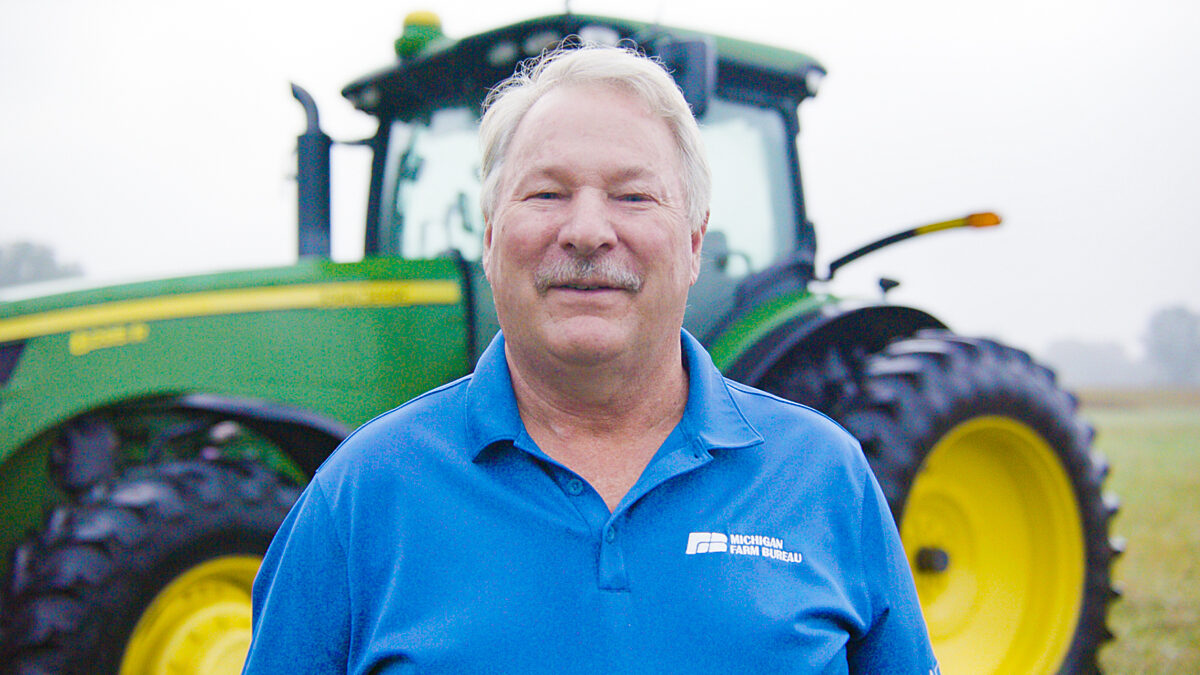The Fourth Industrial Revolution
TOPICS
American farmerGuest Author
Special Contributor to FB.org

photo credit: AFBF Photo
Guest Author
Special Contributor to FB.org
By Ryan Amberg
Who is the American farmer? My answer: a professional, a person of integrity and honesty, an expert in his or her field, a steward of the land, a champion of the working class, an employer, a hard worker and an entrepreneur. All these things are true and define most of the people driving the American farm.
It’s also true that this same American farmer is generally disconnected and unamplified – an expert with no microphone or soapbox…a champion in a small community but unrecognized on the greater stage as the authority in his or her domain.
Thanks to tweets, blog posts, online product listings, factory-to-market retail, etc., we are seeing a direct line of communication to users and customers.
Food is a constant and pervasive basic need, and a much-discussed topic in our culture. We’re at a rare time in history that some call the fourth industrial revolution – a time after the digital revolution when the current information age is becoming fully integrated. The development of cyber-physical systems, the Internet of Things and the Internet of Systems are all dramatically shaping the future.
This connectivity of systems, people, places and things has us teetering toward the death of the “middleman.” We see the shift and development of our industries and businesses, ever moving toward a direct relationship with the customer or end user. Thanks to tweets, blog posts, online product listings, factory-to-market retail, etc., we are seeing a direct line of communication to users and customers.
During this “Age of Amazon,” there is a shift away from massive overhead costs and supply chains to more efficient and connected systems. This provides an opportunity for farmers to communicate to their target consumers directly. They have the chance to cut through the noise and display expertise about the products and produce they humbly craft or grow.
Consider the grocery industry 20 years ago. The traditional grocery store was lined with brand names where communication came down from board rooms regarding new tag lines and slogans. There was an endless push and pull for space on the shelf based on who had command of the almighty marketing dollar. Ten years ago there was a push for healthy, specialty retail, prepared foods and convenience. The control of the message was still in the hands of a select few with the knowledge of the soil, the land and how the raw products were grown or raised. With reduction in costs and ease of communication, this is changing.
Technology is rapidly changing access to information and the cost to distribute it. Individuals or small groups of farmers have a chance to dramatically amplify their message. Farmers can efficiently communicate about their brand, ethics and mission to exponentially larger audiences – as though they were in your living room having a personal conversation with you and your family.
Internet retail is a perfect example. An online retailer can list many more products than any physical store can carry. The cost to add more information and communicate about each product offered is almost zero compared to brick-and-mortar retail outlets, where costs like printing, installation, real estate, turnover and competitive margin all have a much larger impact on the business’s well-being.
This transition is already happening, albeit slowly. More and more farmers and agricultural stakeholders are finding ways to market directly to consumers and cut out the overhead of the traditional supply chain.
If done effectively and ethically we have a lot to be excited about. Farmers will be able to reliably communicate accurate, firsthand information, limiting the spread of misinformation about the integrity of their products. Cost savings in the supply chain will allow farmers to benefit from less overhead to get their products to market. This will result in higher values for their products and more transparent pricing to the consumer. Consumers will gain the transparency they crave and have greater access to information and interaction with the agricultural community. Consumers will have more choices than ever on how to purchase products for their families and homes.
The opportunity is now for the American farmer to step out onto the world’s stage. Change is hard, but not being willing to change is a high-stakes game to be playing with your legacy. This is the time to take a close look at your business and develop a strategy for your future.
Ryan Amberg is a Farm Bureau member in New York where he grew up on his family’s apple nursery. He is the marketing and new business development manager at FELCO North America. He graduated from Cornell University with a bachelor’s degree in agricultural science, with focuses in food marketing and applied economics and management. He is a former member of AFBF’s Young Farmers & Ranchers Committee and current member of AFBF’s Grassroots Outreach (GO) Team.
Top Issues
VIEW ALL